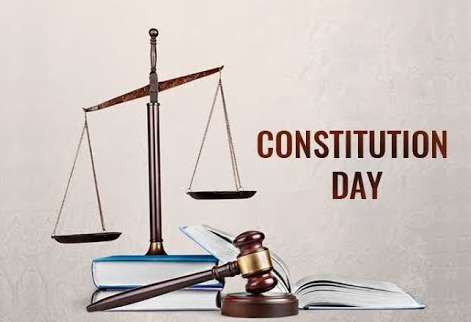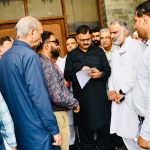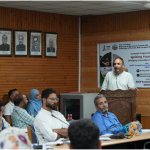On 26th November 73 years ago, the Constitution of India was adopted, coming into effect on January 26, 1950. Since 2015, the day has been observed as Constitution Day, or ‘Samvidhan Diwas’. The Constitution of India is the longest written constitution of any country on earth. India got its lengthy constitution after a long struggle of our freedom fighters. It was through the tireless efforts of the Constituent Assembly presided by Dr.Rajendra Prasad and the drafting committee chaired by BabasahebBhim Rao Ambedkar that the Constitution was bequeathed to us. The idea behind the struggle was to assure Indian citizens equality, liberty and justice.
Dr.Rajendra Prasad, the first President of India, was the President of the Constituent Assembly, which was established in 1946. It took almost three years (two years, eleven months, and seventeen days to be precise) to complete its historic task of drafting the Constitution for Independent India. The Constitution of India is termed as ‘of the people, for the people, and by the people.’ The preamble of the Indian Constitution declared India as a sovereign, socialist, secular, democratic, republic, and the welfare state.Indian Constitution provides us with fundamental rights along with fundamental duties.
The Constitution of India lays down the framework demarcating fundamental political code, structure, procedures, powers, and duties of government institutions and sets out fundamental rights, directive principles, and the duties of citizens. Celebration of constitution day is a gentle reminder to all of us that we have to live up to the expectations of our founding fathers. When various departments of the Government of India celebrated the first Constitution day in 2015, the basic idea was both, to celebrate the successful adoption of our constitution and to work for the realization of its ideals.
26th November every year is celebrated as constitution day to commemorate the adaption of constitution and to inculcate the constitutional values among citizens including the concepts of Liberty, Equality, and Fraternity. Constitution Day is also celebrated to honour and pay tributes to the outstanding contribution of Babasaheb Dr.Bhimrao Ambedkar and other founding fathers of the Constitution.
Wayback in 1949, BR Ambedkar made a moving speech in which he among other things warned us that Indians should not be content with political democracy as inequality and hierarchy were still embedded in Indian society. The constitution makers’ clarity of thought about the aim of a just society is clearly reflected in the founding philosophy of our constitution.
On November 19, 1948, Dr. Ambedkar, speaking in the Constituent Assembly debate during the drafting of the Constitution, said about the Directive Principles of State Policy (DPSPs) contained in Part IV of the Constitution: “It is the intention of this Assembly that in future both the legislature and the executive should not merely pay lip service to these principles enacted in this part, but that they should be made the basis of all executive and legislative action that may be taken hereafter in the matter of the governance of the country.” The Directive Principles which specify the programme and the mechanics of the state to attain the constitutional goals set out in the Preamble. However, we miserably seem to be failing to attain the ideals set out in Directive Principles hitherto.
The celebration of Constitution Day is an occasion of critical introspection of our progress in fulfilling the basic ideology of our constitution. The ‘justice’, ‘liberty’ and ‘equality’ in the preamble are slowly losing relevance and are on cusp of becoming mere ritualistic words for us. We need to introspect as to why justice and liberty, which were the core objectives of the Constitution, have remained unfulfilled. For the unfulfilled objectives of our constitution, instead of blaming each other, an honest self reflection is necessary. This day demands all citizens of India to make strong efforts for fulfilling the noble ideas of democracy, justice, liberty, equality and fraternity etc, which Indian Constitution encompasses in its preamble.
(The author is law student at Kashmir University and campus ambassador of Live Law. He tweets at ummar_jamal can be reached at [email protected])








